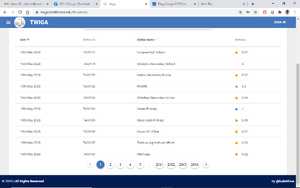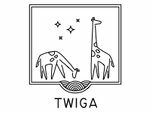TWIGA – HydroNET INTEGRATION

Embracing current and emergent technologies has never been enough in resolving local challenges within our communities. Most often than not, the traditional-silo-kind-of-operation and solution development has proven non-essential in providing a concrete resolve to a given problem. Collaborative approaches however with related models and persons have resulted in refined solutions and more informed techniques of […]
The power of the TWIGA partnership

Within the TWIGA project a broad variety of partners from Europa and Africa are involved. The TWIGA team has applied the award winning HydroNET partnership model where the strength of each partner in the information chain can be optimally used. This blog, written by one of the TWIGA partners HydroLogic Research, outlines the opportunities and […]
ENVIRONMENTAL ACCOUNTING, ON THE DASHBOARD OR IN THE TRUNK?

Fortunately, the attention for environmental accounting and ecosystem accounting is growing. We need more systems for inclusive measurement, monitoring and evaluation. There are many initiatives: On environmental and ecosystem accounting, such as the System of Environmental Economic Accounting (SEEA) (here), The Economics of Ecosystems and Biodiversity (TEEB) (here) and Earth Observation for Ecosystems Accounting (EO4EA) […]
VEGETATION MONITORING (VegMon)

TWIGA acknowledges the important role of vegetation in the hydrological cycle. The vegetation monitoring is being done to monitor growth in the rainy and the dry seasons using an Open Data Kit (ODK) App (VegMon). This therefore entails citizen science – collecting data and analyzing it with farmers and teachers to support agriculture. Selected participants, […]
Towards near real-time atmospheric water vapor monitoring in Africa

Water vapour content of the atmosphere lowest layer (up to about 15 km from the ground), which is known as troposphere or neutral atmosphere, affects GNSS satellite signals propagation velocities, causing delays in their observation from ground-based stations. Based on a proper analysis of such data, one can quantify this delay and therefore have an […]
Field work alternatives during COVID 19

Towards the end of 2019, a good number of students at TU Delft were eager to travel to Africa for TWIGA field work in what we call Q4 (4th quarter, April-June). Unfortunately, as we all know, COVID-19 intervened and made travel all but impossible until now. We had to come up with alternatives to pursue […]
GNSS DEPLOYMENT IN UGANDA

Objective 4 of the TWIGA project aims to Improve predictability and assessment of African rainfall by mapping perceptible water vapour and tracking convective storm systems. The main reason behind the poor prediction skills of present rainfall forecasts in Africa is the lack of knowledge of precipitable water vapour (PWV) in the atmosphere. If one does […]

